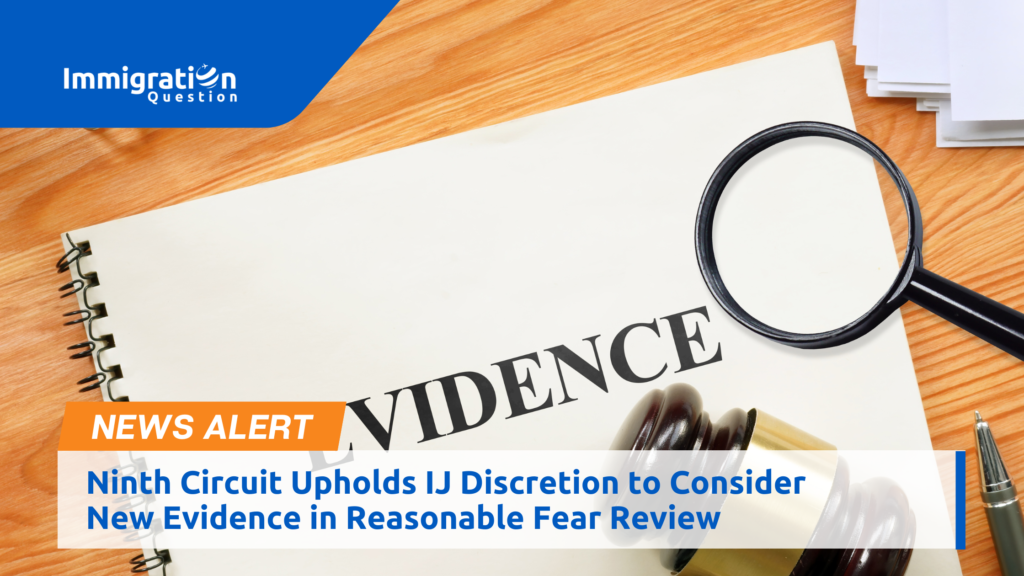Ninth Circuit Grants IJ Discretion to Review New Evidence in Reasonable Fear Cases
The Ninth Circuit recently ruled that Immigration Judges (IJ) have the discretion to consider new evidence when reviewing reasonable fear cases. This decision, made in Dominguez Ojeda v. Garland on August 29, 2024, clarifies that IJs are not required to accept new evidence but must exercise discretion when deciding whether to accept or reject it.
Background of the Case
Dominguez Ojeda, a Peruvian national, faced deportation after the Department of Homeland Security (DHS) issued a notice in 2023 to reinstate his prior removal order. Fearing political persecution upon his return to Peru, he underwent a reasonable fear screening interview. During the interview, Dominguez recounted five separate incidents in which members of the political group Peru Libre physically harmed him, threatened his life, and demanded money. He feared further violence if he returned to Peru.
Despite these claims, the asylum officer determined that Dominguez Ojeda failed to meet the threshold for reasonable fear. After receiving a negative reasonable fear determination, Dominguez Ojeda requested that an IJ review his case.
Attempt to Introduce New Evidence in Reasonable Fear Cases
At the IJ hearing, Dominguez Ojeda sought to introduce new evidence. He shared that he had been raped by members of Peru Libre, along with country condition reports stating the challenges sexual assault survivors face in reporting such incidents. The IJ refused to consider the new evidence, stating that it would be inappropriate to conduct a de novo review that introduced materials not presented initially to the asylum officer.
Legal Error by the IJ New Evidence in Reasonable Fear Cases
The Ninth Circuit held that the IJ’s refusal to review Dominguez Ojeda’s new evidence was legally incorrect. While IJs are not required to consider new evidence during reasonable fear hearings, they must exercise discretion when determining whether to accept or reject it. The court cited Bartolome v. Sessions, reiterating that an IJ has the authority to assess new materials. However, it is essential that the IJ actively chooses whether to do so based on the circumstances of each case.
Implications of the Decision in Dominguez Ojeda v. Garland
The Ninth Circuit’s ruling reinforces the discretionary role of IJs in reasonable fear reviews and broadens the scope for individuals seeking asylum to present critical evidence. This ruling ensures that IJs must consider the merits of introducing new evidence, particularly in cases where it could significantly impact the outcome, such as allegations of sexual violence or relevant conditions that were previously unavailable or unconsidered.
The court’s decision emphasizes the need for IJs to make informed choices based on the specific context of each case rather than applying blanket refusals to consider new information. This approach aligns with the principles of fairness and due process during immigration proceedings.
Get the latest U.S. immigration news and updates – keep an eye out for our news section for breaking stories. Have any questions or concerns? Ask our professional attorneys on Immigration Question and get quick answers.










